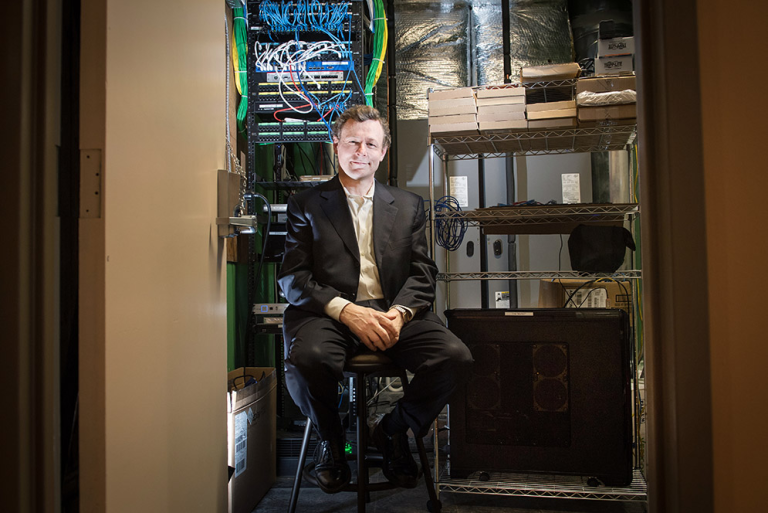STH researchers introduce high tech to a low-tech discipline
BU Today / June 1, 2017
“I don’t even like computers,” Connor Wood confesses. So why is this postdoctoral fellow in religion studies so enthusiastic about the computer simulation displayed on his laptop, resembling the result of an explosion at a spaghetti factory and an adjacent paint store—a tangle of curved, intersecting, multicolored lines?
Because those lines represent the new frontier of computer-simulated religion studies being explored by Wood (GRS’16) and other researchers under Wesley Wildman, a School of Theology professor of philosophy, theology, and ethics. The answers they seek might help explain things from religion’s benefits (potentially better mental health) to its evils (violence in the name of God).
In the field of religion studies, Wildman says, he became an early adopter of computer simulation after a working lifetime had taught him that “social dynamics like religion are complex…and that makes them difficult to understand.” Beholding breakthroughs in other fields made possible by computers, it struck him that “virtual social worlds” could help religion scholars tackle previously unanswerable questions.

